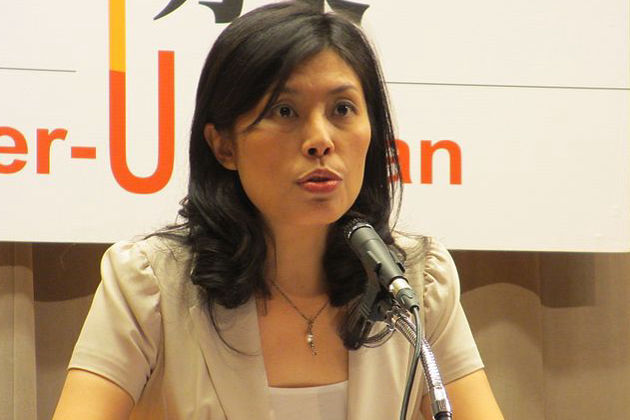Move FM Global News

Taiwan opposition party picks reformist Cheng Li-wun as leader
Oct 23, 2025TAIPEI, Taiwan: Taiwan’s main opposition Nationalist Party, or Kuomintang (KMT), has elected former lawmaker Cheng Li-wun as its new chairperson, following a competitive race overshadowed by allegations of Chinese interference.
Cheng, the only female candidate and a self-styled reformist, won by a wide margin against former Taipei Mayor Hau Lung-bin and four other contenders.
The KMT, known for its traditionally China-friendly stance, remains a powerful force in Taiwan’s politics despite losing three straight presidential elections to the ruling Democratic Progressive Party (DPP), which favors maintaining Taiwan’s sovereignty. The party still holds enough seats in the legislature to form a majority bloc with its allies and recently survived two recall elections triggered by criticism of bills seen as strengthening Beijing’s influence and reducing the executive branch’s authority.
Cheng, who will formally assume office in November, is expected to play a crucial role in shaping the party’s approach to China, as well as its domestic and international policies. Her leadership will also influence the KMT’s performance in the 2026 local elections and the selection of its presidential candidate for 2028.
During her campaign, Cheng promised to revitalize the party, saying she would turn the KMT from “a flock of sheep into lions.” She criticized President Lai Ching-te’s plan to raise Taiwan’s defense budget to 5 percent of GDP, calling for a more balanced strategy toward national security. A former DPP member, Cheng framed her leadership bid as a push for pragmatic reform and stronger unity within the KMT.
In her victory speech, Cheng — now only the second woman ever to lead the Nationalist Party — pledged to promote equality, respect, and mutual benefit in Taiwan’s external relations. “We must not let Taiwan become a troublemaker,” she said. “Nor should we allow Taiwan to become a sacrifice of geopolitics. The KMT will be a party of peace.”
Her election comes at a time of heightened cross-strait tensions. Beijing has accused President Lai of pursuing separatism and has intensified its military and diplomatic pressure on Taipei. While the KMT’s critics fear its historical closeness to Beijing could weaken Taiwan’s autonomy, supporters argue that dialogue and engagement are essential for stability and prosperity.
The leadership race was marred by accusations of Chinese meddling. Jaw Shaw-kong, a prominent KMT figure and Hau Lung-bin’s supporter, alleged that Beijing had interfered through online propaganda, pointing to a flood of videos attacking Hau and promoting Cheng. Taiwan’s National Security Bureau chief, Tsai Ming-yen, said authorities had identified more than 1,000 TikTok videos and 23 YouTube accounts discussing the election, with over half of them operated from outside Taiwan. He declined to specify which candidates the videos favored or confirm if they originated in China.
Cheng dismissed the allegations as “cheap labels,” urging politicians to restore rational debate in Taiwan’s politics. Meanwhile, China’s Taiwan Affairs Office spokesperson Chen Binhua described Cheng’s election as “the KMT’s internal affair,” saying online opinions did not reflect the official stance of Beijing.
The ruling DPP, however, voiced concern. Party spokesperson Wu Cheng warned that signs of Chinese influence were “obvious” and urged the KMT to prioritize Taiwan’s national security over political gain.
The KMT’s history remains deeply entwined with China’s. Under Chiang Kai-shek, the party ruled China in the early 20th century, fighting Japanese forces and later Mao Zedong’s communists before retreating to Taiwan in 1949. The island transitioned to democracy in the 1980s and held its first direct presidential election in 1996 — a legacy that continues to shape the island’s fiercely contested politics today.


